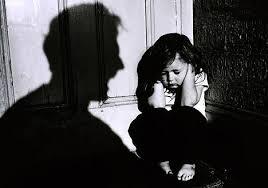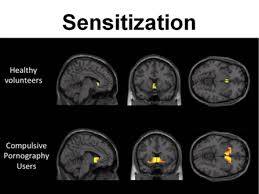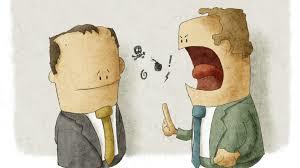Marcia Sirota's Blog, page 30
April 9, 2018
Parents: Don’t Pass On Your Emotional Wounds to Your Kids
Parenting is the hardest job in the world, and I see parents as heroes, sacrificing much of their own comfort and happiness for the sake of their children’s well-being. It’s easy to criticize parents for not being perfect but what would be more helpful would be some constructive tips about how to maximize their skills for the best possible outcomes.
One of the sadder things I’ve witnesses in my years as a psychotherapist is the parent who loves their kids but somehow, these kids still grow up with considerable emotional wounds. It’s understandable to me that abusive or neglectful parents would end up with emotionally wounded children, but loving parents? That seems contradictory.
The explanation is this: a parent who carries emotional wounds from their own childhood trauma will inadvertently pass on their dysfunctional coping strategies to their children. This is because our children learn from us in three ways: how we treat them; what we teach them, and what we model to them.
We can treat our children with love and affection; we can give them the best guidance and advice, but if we don’t believe in ourselves, if we’re extremely self-critical, or if we have serious addictions or other problems our kids can take after us in the negative things even more than in the positive ones.
Sadly, childhood trauma goes so deep that even the strongest love for our children won’t prevent the wounds of the past from affecting them; most especially if we’re unaware of what’s happening and we don’t intervene.
I’ve seen this outcome in my practice far too often to think that it’s some strange aberration. Love and guidance are absolute necessities for raising happy, healthy, successful kids but they’re not enough. If a parent wants to ensure a bright future for their kids, they need to add one additional ingredient to the mix: self-love.
Children unconsciously internalize their parents’ self-regard. A confident, self-loving parent is far more likely to have confident, self-loving kids than an insecure, self-critical parent, even if the latter parent adores their kids.
If you want to be the best possible parent you can be, it’s not enough to love your kids and teach them the important life lessons; you also have to make sure that your own self-love is in tip top shape.
You need to examine your past for any signs of trauma and do your own healing work so that you don’t inadvertently pass on your emotional wounds to your kids.
I’ve worked with many parents and parents-to-be over the years, and I’ve seen how healing from their childhood trauma and developing more self-love has made an enormous impact on how their children grow up.
Doing therapy as a young parent or better yet, before becoming a parent, is a key factor in preventing future difficulties in one’s kids.
I’ve also seen the opposite scenario, where a person with grown kids looks back and realizes how their emotional wounds adversely affected their kids’ emotional development.
These unfortunate individuals didn’t realize in time that they had such deep wounds; they didn’t understand the impact these wounds would have on their growing children.
Having observed both sides of the story – the adverse effects on a child when a parent hasn’t dealt with their emotional wounds and the positive effects of a parent sorting out their issues before it’s too late – I’ve come to see the importance of examining our own emotional wounds when embarking upon the wonderful and daunting task of parenting.
It might seem far-fetched to some people, but I would recommend that everyone considering being a parent or anyone whose kids are still young should attend a few sessions with a psychotherapist, if only to reassure themselves that they aren’t harbouring any unconscious emotional wounds.
If they do discover that there’s something that they’re sitting on, this would be the perfect opportunity to resolve these emotional wounds before the wounds can adversely affect their children or future children.
There are a number of signs indicating that you might be carrying emotional wounds; for example, if you’re suffering from depression or anxiety. These conditions may be genetic but they can also arise out of emotional trauma.
Other signs of emotional wounds from past trauma include any addictions that cause problems in your personal, financial or professional life or any long-term bad habits like watching too much TV or going to bed too late. Other signs are a sleep disorder, an eating disorder or ongoing problems with money.
You could have a long history of low self-esteem, ongoing interpersonal difficulties or the feeling that you’re not fulfilling your potential. You might feel chronically stuck or blocked in your work or your creativity, or you might be pessimistic or cynical, extremely self-critical or very judgmental toward others.
You could be moody and easily upset, or hyper-sensitive to criticism or rejection. You could be easily angered or extremely controlling. You could have a chronically messy home or be way behind in your taxes.
Some people have ongoing physical problems that doctors find it hard to understand or treat, including fatigue, pain or digestive disturbances.
If any of these above signs are familiar to you, you may have a history of childhood trauma that you’re not consciously aware of. It isn’t surprising that this trauma is often unconscious, as our natural psychological defense mechanisms protect us by blocking out many of our painful memories.
Being unaware of your childhood trauma is a common phenomenon, so not knowing about it doesn’t mean that it didn’t happen.
And because of this, it might be a good idea, especially if you can relate to any of the above signs, to see a psychotherapist ASAP if you have kids or you’re considering having kids. It’s just one more way to ensure that you’re being the best parent you can be.
Sign up here for my free monthly wellness newsletter May is all about love and connection.
March 25, 2018
Childhood Trauma Can Give Us Blind Spots to Abusers Today
Lately, I’ve been thinking a lot about the consequences of childhood trauma. One very disturbing and destructive consequence is something rarely, if ever noted. It’s how a certain proportion of trauma victims will develop blind spots toward people who are abusive.
These individuals appear to have something akin to the Stockholm Syndrome, which was first described in 1973 when four victims of a kidnapping In that city developed a psychological alliance with their captor as a survival strategy.
The term, “Stockholm Syndrome” was coined by the Swedish psychiatrist and criminologist Nils Bejerot and is described in Wikipedia as “strong emotional ties that develop between two persons where one person intermittently harasses, beats, threatens, abuses, or intimidates the other.”
In this syndrome, the victim holds on to a belief in “the humanity of their captor” which enables them to no longer see them “as a threat.” It comes about because “the victim’s need to survive is stronger than his impulse to hate the person who has created the dilemma.” A positive emotional bond between captor and captive is a “defense mechanism of the ego under stress.”
Today, it’s seen not just as a consequence of kidnapping but potentially due to “domestic or child abuse, human trafficking, and incest. Prisoners of war, political terrorism, cult members, concentration camp prisoners, slaves, and prostitutes” can all exhibit the symptoms.
Unfortunately, for many of these victims, it’s not just their own abusers(s) whom they see in a positive light but all abusers. It’s as though their psychological survival depends on this rosy and distorted view of their own oppressor and all others. And this is where their psychological defense mechanism turns into something potentially very destructive.
When I think about how prevalent childhood trauma is, this type of reaction makes a lot of sense. It could explain why a mother (with a history of childhood trauma) is unable to recognize how brutal and cruel her partner is and therefore allows him to abuse or molest their children. It could explain why a boss (with a history of trauma) is unable to recognize the bullying going on right in front of their eyes.
It could explain why a young man chooses to start a family with a woman who, to everyone else’s eyes, is obviously disturbed and unstable. It could makes sense of a parent who fails to see that a teacher is being abusive to their child, or a politician who enters into an alliance with a corrupt despot, refusing to recognize the peril he’s putting his country into.
When victims of trauma (from childhood or any other source) have these blind spots it’s much easier for hurtful, abusive people to keep behaving badly around them. And it can create a vicious circle in which the victim can’t see the cruelty of the person they’re with, but nevertheless, they experience further trauma, and therefore they must psychologically defend themselves against this additional trauma with even more denial.
In my experience, these blind spots are more common than we might think. Perhaps they can’t meet the diagnostic criteria for Stockholm Syndrome but many, many individuals who’ve gone through some sort of trauma in their lives become blind to the predations of their abuser, as well as to the behaviours of abusers in general.
It appears that these individuals unconsciously generalize a psychological coping strategy from their past experiences to everyone hurtful that they encounter in their adult life. It’s ironic, as they’re just trying to protect themselves from painful reminders of their original experiences of abuse.
Sadly, when these individuals apply an old defense mechanism to a present-day situation it makes it impossible to protect themselves from anyone who’s hurtful or to defend their friends, loved ones or children against these abusers today.
Childhood trauma is painful enough to go through, but how unfortunate that so many victims of such trauma are at risk of being hurt over and over again, due to their blind spots toward people who unconsciously remind them of the people who abused them in the past.
How tragic that these victims of abuse are often unable, because of their blind spots, to protect their own children, employees or citizens from a bully or an abuser.
The preferred treatment of childhood trauma is intensive psychotherapy. Any type of trauma is so profound and destructive that deep psychological and emotional healing is the only way to correct any counter-productive defense-mechanisms that might have arisen from it.
Fortunately, over time, trauma can be healed and these blind spots can be eliminated, as long as the individual who carries them is willing to enter into the process of therapy and to do the work required for creating meaningful and lasting change.
Sign up here for my free monthly wellness newsletter. April is all about spring cleaning our minds.
March 7, 2018
Is Technology Making it Harder For Couples to Stay Together?
Recently, I was interviewed by radio host John Gormley about my article on how technology could be making it harder for us to find love. After the interview, Gormley suggested that technology could also be making it harder for us to hold on to our relationships. I think he might have a point.
All we have to do is look at couples sitting together in restaurants and coffee shops. They aren’t talking or laughing together; they aren’t touching or kissing. Most often, both people are totally focused on their lap-tops or smart phones.
The question comes to mind: how do we expect our relationships to endure if we’re spending more time engaged with our technology than with each-other?
Love relationships aren’t easy. They take effort to keep them healthy and fulfilling. There are our own needs and the other person’s needs to contend with; our own feelings and theirs. We have to cooperate, compromise, negotiate and problem-solve, all of which require ongoing communication and connection.
Spending so much time with our technology can eat into our one-on-one communication time. It also disrupts the time that we’d be spending just hanging out together, building our emotional bond. Intimacy is built by just enjoying being in each-other’s presence, and technology is depriving us of that time to connect.
One of the nicest aspects of a romantic relationship is the attention we pay to our partner and they pay to us. Now, we have to compete with our technology to get some face-time with our romantic partner.
Intimacy can be defined as “knowing and being known.” In order to really know each-other we must spend quality time with each-other, and that means undistracted time, away from our technology.
We also need to enjoy each-other; otherwise we wouldn’t want to invest so much time and energy in maintaining the relationship. Without that time just having fun together, intimacy suffers and our relationships are more likely to fall apart.
Things get even more complicated if one member of the couple is addicted to online porn. They might tell themselves that this isn’t hurting their real-life relationship; that it’s only fantasy and that no-one gets hurt. They’d be wrong.
Study after study has shown that addiction to porn decreases the ability of the addict to be present with their partner – in fact; serious addicts can be so distracted that they resemble people with ADD.
An article on psychcentral.com describes this phenomenon, and an article in The Guardian shows how porn changes the brain and makes it harder for people to have satisfying sex lives with their partners. A 2013 article in GQ Magazine is entitled, “Quit watching porn before it ruins your sex life.”
Obviously, all of this will have a negative impact on the porn addict’s ability to maintain a romantic relationship with someone in the real world. And according to an article in Psychology Today, that will most likely lead to a break-up.
Tech is also responsible for virtual cheating, in which one member of a couple conducts an online relationship behind their partner’s back.
The online cheater may not be having in-the-world sex with this other person, but they are directing their attention and affections away from their partner – something that’s highly likely to undermine their relationship.
This is also the scenario in which cat-fishing is most likely to occur. The online cheater could end up sending large sums of money to their virtual lover in the hopes of establishing in-the-world contact, only to discover that this person isn’t at all who they thought they were.
I could imagine that it would be very difficult for a relationship to survive after a cat-fishing incident initiated by one partner’s online cheating.
In the “olden days,” people in couples complained bitterly when their partner was a workaholic and they hardly got to see them. They complained if their partner traveled too much for work, if their partner was always hiding out in their “man-cave” watching sports or if they were constantly locked away in the garage, fooling around with their power tools.
None of these scenarios led to happy relationships, because it’s a necessity that we spend a certain amount of quality time with our romantic partner.
These days, more and more of us feel entitled to a fully present, engaged partner, so fewer and fewer of us are likely to tolerate an absent partner, whether it’s due to overwork, hobbies or technology.
If you (and/or your partner) are spending a significant amount of time focused on your technology instead of on each-other, be very careful. This kind of behavior could be leading you toward a painful and unnecessary break-up.
Sign up here for my free monthly wellness newsletter. April is all about spring cleaning our minds.
March 6, 2018
Constant Workplace Interpersonal Conflicts? Consider Childhood Trauma
Childhood trauma could potentially have long-lasting consequences in our lives, especially if we don’t realize that we’ve experienced it.
Our childhood is our “normal,” so it can be difficult to recognize when things are happening that shouldn’t be.
And even when we do realize that bad things have happened to us, we may not see that we’ve been traumatized, or that this trauma has affected different aspects of our personal or professional lives.
One of the ways the consequences of childhood trauma can be seen is in how people interact with each-other in the workplace.
In the workplace, there are different types of relationships that we enter into. There’s the relationship between boss and employee or the relationship between two or more colleagues.
If you’re someone who constantly finds yourself in conflict with your supervisors, your employees and/or your colleagues, you might want to consider the possibility that you have childhood trauma – trauma that’s adversely affecting how you interact with other people at work.
There are different ways that people with childhood trauma could potentially interact with others in the workplace. They can be overly helpful people-pleasers, or doormats who are too tolerant of disrespect.
These individuals can be self-sacrificing workaholics who end up burnt out; and some of them, if severely traumatized, can be filled with so much old rage toward their abusers that they take out this anger on their supervisors and/or colleagues today.
Some people with childhood trauma are people-pleasers, constantly care-taking and doing too much for others.
They please and care-take in the hopes of finally obtaining the love and approval they were lacking in their childhood. They don’t realize that being a pleaser won’t bring them positive regard or heal their emotional wounds.
Whether as a boss or a colleague, these people avoid conflict and try to curry favor with everyone around them. Interestingly, the more they try to please, the more these people are disrespected, and even held in contempt by the other people at their workplace.
These are the individuals in the workplace who are taken for granted, taken advantage of, disrespected and sometimes even bullied.
If you have a history of being disrespected or bullied in one workplace after another, you may be a people-pleaser. If so, you’ll need to see that the bullying won’t stop until you give up this bad habit.
Some people with childhood trauma have grown up being mistreated so they assume that this is all that they “deserve” or all that they can expect of their colleagues and supervisors.
If you’re constantly being mistreated by the other people at work, you may need to examine your past for trauma, and for obvious or subtle messaging that you “should” tolerate it.
Some people with childhood trauma were exploited by their care-givers and believe, as adults, that the only way to fit in at work is to do too much.
These individuals will take on the projects that no-one else wants to tackle; they’ll do other people’s work and they’ll overwork until they burn out, believing incorrectly that this is what they’re “meant” to do.
If you recognize yourself in this behaviour, it might be time to explore your past for the possibility of childhood trauma.
Some individuals with childhood trauma end up behaving like the people who abused them in the past. They’re so deeply wounded that they end up just like their “role-models” – the abusive adults who hurt them as children – becoming nasty, disruptive, even toxic adults in their workplaces.
If you recognize a boss or a colleague who’s behaving in an abusive or disruptive manner in the workplace, it’s quite possible that they experienced childhood trauma. Unfortunately, they’re unlikely to be open to your help or advice on this matter.
People who are abusive for any reason have the potential for being tremendously destructive to your personal life or your career, so they must be approached with great caution. If possible, they should be avoided altogether.
If you recognize someone like this at your workplace, you might be better off looking for a job somewhere else.
It’s clear that childhood trauma can manifest in a variety of ways in the workplace. If you see yourself in any of these behaviours, it might be time to speak to a therapist about your past, so that you can finally find healing and begin to improve the quality of your interactions at work.
Sign up here for my free monthly wellness newsletter. April is all about spring cleaning our minds.
March 5, 2018
If You Struggle to Connect With Others, It Could Be Due to Childhood Trauma
It seems that for many people these days, it’s gotten a lot harder to connect with others. Unfortunately, people who’ve experienced childhood trauma are at an even greater disadvantage when it comes to forming attachments.
Childhood trauma can have life-long repercussions. These can be minor to severe, depending on the severity and duration of the trauma, the presence of parental support during the traumatic events; as well as the innate resilience of the child who experienced them.
In my years as a psychotherapist, I’ve noted that people with significant childhood trauma tend to struggle more than most with their relationships. These individuals have trouble getting close to other people, and when they do connect with others, the relationships they form aren’t always constructive ones.
Trauma in childhood can come in many forms. It can take the shape of severe parental neglect or abandonment; boundary violations or exploitation; constant criticism or undermining; parental addiction(s) or incarceration; physical assault or sexual molestation; experiences of profound loss or fear, or living in unstable or dangerous environments.
Regardless of what form the trauma takes, a lack of parental support combined with a higher degree of personal susceptibility to the traumatic events can lead to the formation of emotional wounds, and often, disorders of attachment.
In emotionally intact adults, connecting to others comes relatively easy. We meet people, we like each-other, and we form strong social bonds. In individuals who’ve experienced childhood trauma, all of these stages can be disrupted.
The emotionally wounded individual has more difficulty trusting others after the painful experiences they’ve been through. They might have a deep-seated belief that they aren’t lovable or that they’re not entitled to a loving relationship. They might be terrified of being hurt, exploited, abandoned or rejected. All of this could lead them to isolate themselves and avoid closeness with others.
People with a history of childhood trauma might believe that others will only want to associate with them if they’re a people-pleaser or care-taker. They enter into co-dependent relationships and when these invariably fall apart, they’re more fearful than ever of being hurt.
Some of these individuals are so convinced that they’ll be rejected that they inadvertently behave in ways that provoke the other person to do this. (This is an example of how our psychological defense mechanisms backfire, giving us exactly what we’re trying to avoid.)
People with childhood trauma may have deep (and valid) needs for love and nurturing that weren’t met when they were growing up. Some believe that they can get these needs met in their adult relationships. This can lead to at best, dysfunctional relationships and at worst, abusive ones in which a shrewd, exploitative predator takes advantage of their neediness.
Individuals with emotional wounds from a hurtful childhood often feel uncomfortable around other people and don’t know how to act. They often feel awkward and anxious in social situations, leading to upsetting interactions which only reinforce their sense of alienation.
These individuals have difficulty forming close bonds, either because they don’t expect people to stick around or because after everything they’ve been through, it’s difficult for them to open their heart to someone else. Sometimes, their deep ambivalence about closeness makes them behave in ways that are confusing or off-putting to others.
Some individuals with a history of childhood trauma might choose friends or partners who are hurtful or abusive. This happens because everyone prefers the familiar, and hurtful people today remind these individuals of the hurtful people from their past.
Sadly, being in relationships with hurtful people can make trauma-sufferers that much more fearful about getting involved with the next person, resulting in further social withdrawal.
Loneliness is very much a part of our modern society. More and more, our “relationships” are carried out through social media as opposed to in-person. More and more, we’re so busy and over-extended that we have little time to spend with the people we care about.
For individuals with childhood trauma, the ubiquity of social media makes it that much easier to avoid the challenges of connecting. These individuals can conduct the majority of their “relationships” on-line, in order to minimize the risks getting hurt.
Of course, the fewer in-person relationships we have and the more on-line ones we have, the lonelier we’re likely to feel. There’s no substitute for in-person contact in terms of the emotional nourishment we receive and the social skills we develop. Ultimately, if we really want to connect meaningfully with others, we have to do it in-person.
Childhood trauma can have long-term consequences, and the struggle to connect with others is one of the most significant of these. If you’ve been keeping to yourself or having difficulties with interpersonal relationships, it could be a sign that you have childhood trauma.
If you’ve been having difficulty connecting with others, the way to improve your relationships isn’t necessarily through social skills training. You may need to go a bit deeper, by working with a therapist or counselor to heal your childhood trauma.
If childhood trauma is something you’ve experienced, doing this work could make it that much easier for you to connect with others and create meaningful, lasting relationships.
Sign up here for my free monthly wellness newsletter. April is all about spring cleaning our minds.
February 21, 2018
Sarah Silverman Took a Big Risk, Engaging With an Internet Troll. Should We Do the Same?
Sarah Silverman shocked the internet the other day when she responded with tremendous compassion to an internet troll. This person had something horrible to say to her and instead of blowing off the person or schooling them in the polite use of social media, she reached out with concern.
She told her online offender that she was worried about them; that their hurtful words came across more as a cry for help than as an insult. And it turns out that in this case, she was right.
Her bully let down their guard and showed Ms. Silverman their soft, wounded underbelly. In the end, Ms. Silverman even helped set up this person with a therapist, so that they could deal with their issues rather than continuing to take out their unhappiness on others.
This scenario fills me with many emotions. I’m impressed to see someone behaving with such sensitivity and kindness on social media; especially in the face of hurtful behavior from another. I’m also amazed that the bully was able to let in Ms. Silverman’s kindness and respond to her so favorably.
I’m pleased that Ms. Silverman has demonstrated to everyone online a model of compassion and caring, however I’m concerned that she might have set a risky precedent for how the rest of us deal with online bullies; one that could be setting us up for further attacks.
Bullying, whether online or in-person is most always an attempt by someone who feels weak, disenfranchised and overwhelmed to feel more powerful, dominant and in control. The bully puts down the other person in order to pull themselves up.
The bully is an angry, unhappy person who preys on those who seem, at least on the surface, to be weaker or more insecure than them. They do this because the weak person reminds the bully of their own embarrassing inadequacies and the bully feels threatened by these individuals.
The bully attacks the “weaker” person because they feel the need to “punish” this person for making the bully feel so uncomfortable. Some bullies, though, are sociopaths who take pleasure in hurting others and who use the internet as their access portal to as many potential victims as they can find.
The bully attacks people who they see as “weak” but they also attack celebrities. They do this mainly out of jealousy. The bully feels bad about where they are in their own life, and they want to bring down those individuals whom they perceive as “doing better” than them or “having more” than they do.
Many of these bullies, without realizing it, are behaving this way as a cry for help. They’re putting themselves into the public domain as trolls and haters because they’re emotionally wounded and they need to express their pain (as vitriol). Perhaps they have a secret, unconscious wish of being rescued.
And this is where Sarah Silverman comes in. She’s out there in the public eye, tweeting and posting on social media. Bullies resent people like her and they attack these individuals online, as did the person who insulted Ms. Silverman the other day.
Typically, I see two different ways that people deal with on-line bullies: either they just block them and forget about them or they choose to engage in an argument with them. I’ve always recommended the former, as there’s never any value in arguing with a bully.
Ms Silverman did something very different when she chose a third option: to be compassionate toward the bully. She saw this person’s attack on her as a cry for help and she reached out with kindness and concern.
Ms. Silverman demonstrated an unusual and inspiring degree of sensitivity, considering that this person had insulted her in public. I commend Ms. Silverman for her choice, especially because it resulted in a win-win scenario, but I wonder if this outcome is merely a happy accident.
I do believe that many online bullies are doing what they’re doing as an unconscious cry for help. However, many of these individuals could be so out of touch with their emotional pain and so focused on their anger, jealousy or hatred that they’d be immune to the type of compassionate response offered up by people such as Ms. Silverman.
Sadly, I believe that very few bullies would be amenable to Ms. Silverman’s type of approach. I wish that this wasn’t the case but from what I know of human nature, it’s far more likely that a kind, supportive approach to an on-line bully would be met with increased hostility rather than with appreciation and conciliation.
As much as I value Ms. Silverman’s good heart, I would encourage other people to be cautious in their dealings with online bullies. If targeted by someone like this, I’d still recommend that the most prudent course of action would be to not engage; even block this individual.
Yes, many of our online bullies might be attacking us as a cry for help, but how many of them would respond to our kind outreach by choosing to put down their poisoned pens and enter into a meaningful and respectful dialogue? Far too few, I fear.
And how many of us would be willing to risk a further attack from someone who’s already shown that they’re capable of inflicting great harm? Ms. Silverman’s approach worked well in this one scenario, but who’d be willing to give an online attacker another potential opportunity to insult us and drag our reputation through the mud?
Who’d be open to the risk that the bully would use our kindness against us? After all, these are total strangers and we have no idea what to expect from them. So, while I applaud Ms. Silverman for taking that chance, I would recommend that when dealing with online bullies, whether or not their behavior is a cry for help, the rest of us ought to proceed with great caution.
Sign up here for my free monthly wellness newsletter. March is all about how childhood trauma affects our ability to connect with one-another.
February 9, 2018
In 2018, US Olympic Athletes are Ashamed of Their Government
The 2018 winter Olympics are here and they’re off to becoming the most politicized games ever. Since the start of Olympic season, I’ve observed some fascinating and inspiring events.
Most inspiring was champion skier Lindsey Vonn who has said that she won’t represent U.S. President Donald Trump when she skis in the Olympics. She said that she hopes “to represent the people of the United States, not the president.”
You can’t get any clearer than that. It seems obvious that she’s ashamed of the current U.S. administration and that she’s making an effort to distance herself from it.
In a CNN interview from December 2017, Vonn said, “I take the Olympics very seriously and what they mean and what they represent, what walking under our flag means in the opening ceremony.
She added, “I want to represent our country well. I don’t think that there are a lot of people currently in our government that do that.” She also said “absolutely not” when asked if she’d go to the White House if she were to win a medal or receive an invitation.
These statements are amazing, because in the history of the U.S. Olympics, there’s never been an athlete, as far as I can remember, who’s positioned themselves so squarely in opposition of a sitting government.
I was also pleased and impressed by the words of figure skater Adam Rippon, the first openly gay U.S. Winter Olympian. He criticized the selection of Vice President Mike Pence to lead the 2018 U.S. Olympic delegation to South Korea and said that he didn’t plan to meet with Pence during the meet-and-greet that happens between the delegation and the athletes right before the opening ceremony.
In a USA Today article, he’s quoted as saying, “You mean Mike Pence, the same Mike Pence that funded gay conversion therapy? I’m not buying it.”
Rippon added, “I don’t think (Pence) has a real concept of reality… To stand by some of the things that Donald Trump has said and for Mike Pence to say he’s a devout Christian man is completely contradictory. If he’s okay with what’s being said about people and Americans and foreigners and about different countries that are being called ‘shitholes,’ I think he should really go to church.”
Olympic freestyle skier Gus Kenworthy also criticized Mike Pence recently, saying that Pence was a bad fit for the U.S. delegation, as the 2018 Olympics are all about inclusion and that Pence, with his anti-LGBTQ-stance, definitely isn’t. I’m so proud of both these men who aren’t afraid to stand up and speak their truth to power.
These are the most vocal athletes, but I can imagine that many others quietly share their views. This is the most polarized period in U.S. history. People on each side of the political fence are deeply passionate about their respective political stances.
Those who support the current administration are seemingly willing to blindly follow the president and his band of apologists, despite a multitude of accusations and inquests, related to everything from Trump’s mental unfitness to serve, to his sexual impropriety, to questions of election fraud and even the possibility of the obstruction of justice.
And yet, those who are horrified at what they see happening in their country are more and more prepared to stand up and speak out, even if it happens to be at their own expense.
These are the most vocal athletes, but I can imagine that many others quietly share their views.
In the NFL these days, players have become highly politicized, with many choosing to kneel during the national anthem in protest. Former San Francisco 49ers quarterback, Colin Kapernick was the first, in August 2016. Afterwards, he explained that he wasn’t “going to stand up and show pride in a flag for a country that oppresses black people and people of colour.”
Not surprisingly, with feelings running so high on both sides, there’s been a heavy backlash for many of these protests. Lindsey Vonn has heard that “people are hoping that I break my neck” after she criticized Trump. Kapernick is currently unemployed as no NFL team is now willing to hire him. Many wonder if he’ll ever play in the NFL again.
The veiled threats toward Vonn and the apparent blackballing of Kapernick demonstrate quite clearly just how polarized the U.S. political climate is.
Still, I’m excited by the fact that right now at the Olympics, U.S. athletes are using their platform to speak out against Trump, Pence and the rest of the U.S. administration. The Olympics are viewed with great interest by people all over the world, and when a U.S. athlete is so openly critical of their sitting government, it sends out a message that’s crystal clear.
When Olympic athletes make it brutally clear how ashamed they are of their current administration, it shows the world that these Olympians love their country, are competing for their country and are there for their country. It also shows that they’re not there to represent or support the current U.S. administration in any shape or form.
Sign up here for my free monthly wellness newsletter. March 2018 is all about spring cleaning our minds.
February 6, 2018
Is Technology Making it Harder to Find Love?
Maybe you’re too young to remember when people went on dates and actually talked to each-other, without the intrusion of technology into their interactions. Maybe you can’t remember a time when people just hung out together and connected.
I can and I have to say, I miss those days. It used to be that people could really get to know each-other by spending time together. We’d talk about all sorts of things – our hopes, dreams and fears – until we began to feel that ineffable thing known as a “connection.”
Today, technology is ubiquitous. We bring our phones everywhere and look at them dozens, if not hundreds of times a day. We spend more time interacting with our technology than we do with the people in our lives.
And all the time we spend with our technology is making it harder for us to connect with other people. Recent studies bear out this notion. I wrote an article in 2016 about how our addiction to technology is making dating even harder than it usually is.
An NBC poll from 2015 showed that more than 70% of Americans believe that technology is making our relationships weaker, and a 2016 Time Magazine article by Mandy Oaklander quotes a study published in the journal Psychology of Popular Media Culture, which found that “people who were more dependent on their smartphones reported being less certain about their partnerships,” and that “People who felt that their partners were overly dependent on their devices said they were less satisfied in their relationship.”
Everywhere you go, you can see how technology has changed the way people interact. I was out last New Year’s eve, having dinner in a nice restaurant. Across from us, a young couple sat with their faces buried in their phones.
I felt so sad for these youngsters who were missing out on the fun and fulfillment of human connection because their priority was to focus on their phones.
These days, fed up musicians and venue managers are more often insisting that concert-goers lock up their phones in a Yondr pouch or leave their technology at home. I’ve read several articles from people who did this and the universal response is that these people were more able to “live in the moment” and enjoy the direct experience of the concert, rather than being caught up in documenting it for social media.
Recently, a school in California was considering having locked phone pouches for its students, so that they could disconnect from technology and be more present for the social and academic experiences available to them at school.
In Philadelphia, they’re asking people who enter the courthouse to put their phones in pouches, and although some are resistant to this plan, most are willing to go along with it.
Last May, I was interviewed by Jason Osler of CBC radio about how some coffee shops have stopped providing Wifi, in the hopes that their patrons would begin talking to one-another again.
Wouldn’t it be nice if we were given phone-locking pouches whenever we entered a restaurant? Each dining establishment could have a landline to take emergency calls but otherwise, guests would be forced to interact with one-another, as opposed to spending their meal engaged primarily with their technology.
For daters, this would be ideal, as they’d have no other option than to get to know the person sitting across from them. They wouldn’t be able to avoid any potentially uncomfortable human contact by keeping their noses stuck in their phones.
Yes, it might be awkward at first as everyone readjusts to having no technological buffer zone between them and the other person but I imagine that soon enough, they’d get the hang of it; sort of like riding a bicycle. After all, we’re communal beings, built to make connections. It shouldn’t be that difficult to re-learn what we’ve forgotten.
Not that long ago, I wrote a couple of books for my Short and Sweet Guides to Life series. One was a book for men, entitled, “Women Decoded”, which is meant to help men understand women and recognize certain behaviours in women that they might want to avoid.
The other is a dating book for women wanting to get “Back on the Market” after divorce or widowhood. In this book, I list a number of “red flags” a woman should pay attention to as she’s getting to know a new man.
If both men and women are overly focused on their technology, it’ll be impossible for them to notice the warning signs, avoid the toxic individuals and enter into positive relationships.
These days, more and more studies are showing that we’re struggling to make meaningful connections with one-another. Technology is incredibly useful but it’s not perfect. One way I think it’s harming us is in how easy it makes it to avoid the discomfort of getting to know each-other or confronting each-other over a problem.
One of the sweetest things in life is the courtship phase of a relationship in which we get to know all the weird and wonderful things about each-other and begin to feel the growing bond. Technology is ruining our courtships and making us miss out on these precious, joyful moments.
One of the best ways to deepen a connection with someone is to confront them – in a loving, respectful manner – about something they did that upset us or something they didn’t do that we needed them to do.
If they respond well, it takes our trust of them to a whole new level and creates a connection that’s rock-solid. Tragically, technology is making this increasingly difficult, as it gives us so many options for avoiding any uncomfortable interactions.
Is it too much to ask that we put down our phones and actually have a conversation? With or without the Yondr pouch, I vote to spend more time with our phones shut off so that we can communicate and commune with one-another. Who knows what amazing things could come of it?
Sign up here for my free monthly wellness newsletter. February 2018 is all about different ways to look at love.
February 1, 2018
How to Survive Being Single on Valentine’s Day
The other day, my hairdresser Rob mentioned to me that he’s not looking forward to February. The reason was that as Valentine’s Day approaches, many of his single female customers are, in his words, “totally freaking out” about not having a date for the night.
My hairdresser works in a nice salon. Most of his clients are attractive, successful women. A lot of the single ones, it seems, are having a hard time coping with being unattached on the one day of the year devoted to love.
It reminds me a bit of New Year’s Eve, in which many of us put a huge amount of pressure on ourselves to have the most exciting celebrations with the largest group of friends. In both cases I think that we’re trying too hard to prove something to ourselves or to the other people in our lives, and that can never end well.
A recent study from Sebastian Deri, a Cornell University psychology PhD candidate, demonstrated that although we usually consider ourselves superior in most categories, when it comes to our relationships, we assume that we’re less successful than the other people in our lives.
This tendency to compare ourselves negatively can have a major impact on our self-esteem when holidays come around; most especially on Valentine’s Day.
We imagine that everyone else is in a loving, committed relationship, or at least, they’re out there, having a ton of fun dating, while we’re alone in front of the TV in our fuzzy slippers plowing through a tub of Haagen Dasz.
The single women at my hairdresser’s must be mortified that they’re the “only one” in their social circle who’s “a failure” at finding a mate. But that’s not really the case.
Sure, it’s great to meet that special someone and have their love and support day in and day out, but that isn’t always possible, especially in this age of increasing isolation and alienation.
These days, a lot of us might be spending more of our time unattached than in a committed relationship, and for those people who find themselves alone on Valentine’s Day, I offer up a few suggestions.
1: Being single is not a disease. It doesn’t help if you put yourself down for not having a date on this night. You’re not a “loser” or a “failure” if you haven’t found love.
You’re not single because of any inadequacies or shortcomings within you. Often, finding that special someone is just the luck of the draw. Instead of beating yourself up for being unattached, try to put things in perspective. Think about all the good things you have in your life and be grateful for those.
2: There’s no substitute for self-love. When you nurture yourself, you feel fulfilled. Sure, you might still want a partner but at least you won’t feel like you desperately need one. And, when you’re filled with self-love, you’ll be walking around feeling complete.
With self-love, you won’t feel the burning need for someone else to compensate for the lack of love in your life. If you do meet someone, your relationship will be based on caring and sharing, rather than needing the other person to fill a void inside you.
3: Being desperate always backfires. Desperation makes you jump at the first person you see, rather than waiting for the right person to come along. Love, even a real connection, isn’t something you can force.
You may or may not someday find the love of your life, but it won’t happen by trying too hard. Live your best life and be your best self and if the person of your dreams is out there, they may very well find you.
4: Say no to self-pity, yes to being proactive. You don’t have to be desperate but you can make yourself more available. Get out there and join a club, take a class or connect with a social group.
Participate in sports or community activities. Get involved with things that you feel passionate about and over time, you’re likely to make some new friends; maybe even meet someone nice.
5: Meanwhile, feed your soul. Get out into nature and commune with the universe. Take part in spiritual or religious services. Meditate, do yoga, practice mindfulness. Any of these will help you to feel happy and fulfilled, whether or not you find love by Valentine’s Day.
6: Rediscover the artist within you. We were all creative as kids; it’s just that some of us forgot how great it is to create. Doing art of any type is going to be incredibly uplifting and meaningful. Art is something that you can do just for yourself.
Being creative is empowering because doing art makes you happy. And, if you gain some mastery, other people will likely want to write, or dance, or play music with you. Creative collaborations may or may not lead to love but they’re fantastically fun.
7: Value your friends and family. You have people in your life, right now, who love and accept you unconditionally and who’ll be there for you whenever you need them.
You may not have a romantic partner but you do have love in your life. Be grateful for these relationships and put energy into keeping them strong and you’ll feel a lot less lonely on Valentine’s Day.
8: Giving love fills you with love. Being a kind, caring, generous person will bring you fulfillment and a deeper sense of connection with others. Altruism is extremely rewarding.
Studies have shown how the happiest people are the ones who are the most generous. You may or may not find your soul-mate while you’re out there giving to others but your life will be rich and filled with joy and meaning.
Valentine’s Day comes once a year. Whether or not you have a date that night, you can have plenty of love, fun and fulfillment throughout the year. Follow the above suggestions and you’ll never have to worry about Valentine’s Day again.
Sign up here for my free monthly wellness newsletter. February 2018 is all about different ways to look at love.
January 30, 2018
In Cases of Alleged Sexual Assault It’s Time We Give Women the Benefit of the Doubt
I was listening to a phone-in radio show, the day when Ontario provincial PC leader Patrick Brown announced his resignation as PC party leader. One of the people phoning in insisted that we should give Mr. Brown the benefit of the doubt about his actions, and that got me thinking.
For decades, people have been harassed, groped, sexually assaulted and raped by co-workers, bosses, family members, classmates, teachers, fellow commuters, doctors, coaches, directors and producers. Up until very recently, these victims were almost never given the benefit of the doubt.
Over the decades, the victims of these crimes have had virtually no recourse; their complaints falling on deaf ears. They’d be accused of making up their stories, exaggerating the offense, being self-serving extortionists, or trying to ruin the other person’s reputation.
Meanwhile, the defenders and enablers of these assailants were doing their best to make sure that it was the reputation and the livelihood of the victim that got destroyed.
These complainants learned from every victim who’d gone before them that the best course of action was to shut up and take it. They learned that speaking up could get them fired or sued; that they’d be slut-shamed or portrayed as a seducer or a vindictive b%&@h.
They knew from everyone who’d gone before them that if they chose to take legal action they’d be virtually assaulted all over again, because in speaking with the police or appearing in court, every past action would get picked over, exposed and condemned. Instead of finding support, they’d be vilified and humiliated for what had happened to them.
These victims were taught to blame themselves when some predator got them drunk or roofied their drink and then violated their boundaries. They were shamed for “losing control” and reminded that they’d “brought it upon themselves.” Meanwhile, no-one held their assailant responsible for his actions.
For the longest time, victims of harassment, assault and rape have been told, both overtly and in more subtle ways, that they were “being prudish” and “over-reacting” when someone groped their breast or grabbed their crotch. They were told that they were “the one with the problem,” not their assailant. He always got the benefit of the doubt.
Victims were told that if they didn’t want to be fondled or hear lewd remarks about their anatomy or be barraged with offensive fantasies about what a powerful man wanted to do to them, they shouldn’t dress the way they did, wear their hair or makeup the way they did, or even just be as young and cute as they were.
Men in positions of power have been continually given a pass for exposing themselves to their victims, masturbating in front of them and groping them in plain sight of others. Their handlers’ message: these predators were “just having a little fun” and the victim obviously had problems with anger or was mentally unstable if they couldn’t “play along” or “take a joke.”
A pernicious lie was perpetrated that these victims always had a choice, always could say “no,” and that there would be no repercussions if they refused the assailant’s advances. Recent news events have clearly revealed the truth about this.
For decades, individuals have said “no” when a man was trying to force sex on them, but their “no” was ignored or purposefully misunderstood. Afterward, the assailant cried crocodile tears, explaining how it was the victim’s fault, as they hadn’t made it clear that they meant “no.”
It’s incredibly difficult for people to say “no” under the best of circumstances. It’s that much more challenging to say a clear, definitive “no” when being sexually compromised. The innate desire not to offend kicks in and sometimes a person can be bullied into doing things they don’t want to do, for fear of hurting the other person’s feelings.
If someone initiating sex with another person even bothered to understand this all-too-human dynamic it would be easy for them to recognize that their intended partner was not agreeing to the activity.
If the potential offender were more sensitive, more caring, more interested and more aware of how difficult it is for anyone to engage in confrontation, they’d easily be able to identify the non-verbal signs of an unwilling participant in any sort of sexual activity: the rigid body language, the turned-away head, the pulled-away torso, the shaking of the head, among other signs.
If the individuals pushing for sex had given their intended partners the benefit of the doubt, the vast majority of sexual assaults would never have occurred. The truth is that many of these assailants don’t care what the other person wants. They have an agenda to fulfill – to get laid; to get off – and they’re going to fulfill it, no matter what.
For decades, those who minimize and enable the behavior of the perpetrators have said, “He grew up in a different era. He wasn’t aware that things had changed.” My answer: He lives in the present. He’s responsible for knowing today’s rules in the same way as, for example, a driver is.
They’ve said, “He’s a college athlete; he can’t lose his scholarship.” My answer: If he had so much to lose, why wasn’t he more responsible with his actions?
They’ve said, “He’s the victim of a malicious plot.” My answer: If we examine the actual evidence the truth will come out.
Victims are blamed for not saying “no” clearly enough, but the perpetrators aren’t blamed for pushing themselves on their victims. Victims are decried for speaking out about their assaults but the perpetrator is never criticized when his gang of defenders does its best to discredit his victim.
For the longest time, we’ve solely given the perpetrators the benefit of the doubt. Now it’s time to start giving the benefit of the doubt to those individuals accusing powerful men of sexual harassment, assault and rape. It’s the only way to redress the egregious errors of the past and begin to create a fair and equitable environment for complaints of this nature to be explored.
Sign up here for my free monthly wellness newsletter. February 2018 is all about different ways to look at love.
Marcia Sirota's Blog
- Marcia Sirota's profile
- 1 follower



















